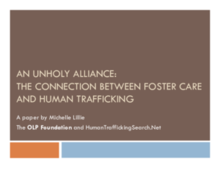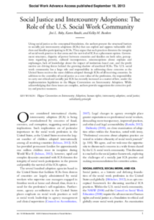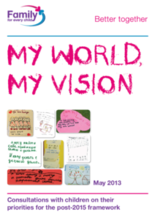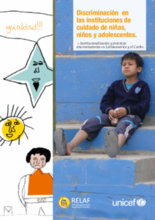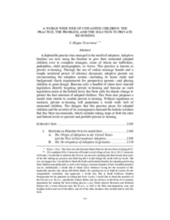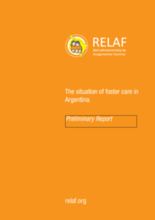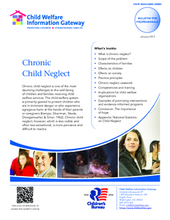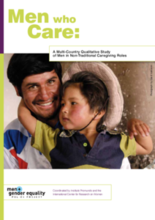This page contains documents and other resources related to children's care in the Americas. Browse resources by region, country, or category.
Displaying 1341 - 1350 of 1438
This presentation, given at the Fifth Annual Interdisciplinary Conference on Human Trafficking 2013, describes a research paper that examines the connection between foster care and human trafficking in the United States with special emphasis on sex trafficking.
Using social justice as the conceptual foundation, the authors present the structural barriers to socially just intercountry adoptions (ICAs) that can exploit and oppress vulnerable children and families participating in ICAs. They argue that such practices threaten the integrity of social work practice in that arena and the survival of ICA as a placement option.
This chart produced by the US Government's Children's Bureau includes data submitted to the Adoption and Foster Care Analysis and Reporting System (AFCARS) by US States, the District of Columbia and Puerto Rico by July 19, 2013.
The Millennium Development Goals will come to an end in 2015 and discussions are currently taking place on what framework will replace them. Children’s participation is crucial to these discussions. Between July 2012 and March 2013, members of Family for Every Child consulted with children living in seven different countries. This report summarizes the main findings that emerged from these consultations.
El presente informe refleja distintos aspectos del fenómeno de discriminación que sufren las niñas, niños y adolescentes sin cuidado parental que residen en instituciones de América Latina y el Caribe.
This book focuses on the lives of six mothers who had been pariahs and then became partners with child welfare commissioners, social workers, lawyers, foundation officers, and child welfare agency executives. It recounts how their courage and resilience brought about the most significant changes in the history of New York’s child welfare system.
Adoptive families are now using the Internet to give their unwanted adopted children over to complete strangers, some of whom are traffickers, pedophiles, child pornographers, or worse. This practice is known as private rehoming.
This preliminary report analyzes the practice of foster care in Argentina. The material will be useful for the development of foster care services in the Latin American region, due to the fact that the situation of foster care in Argentina can be seen as a model of the current regional context.
This Child Welfare Information Gateway bulletin for professionals in the US discusses what chronic neglect is and reviews ways to work with families experiencing chronic neglect, including critical elements of successful casework practice, examples of what agencies are doing, and ways agencies can integrate child welfare approaches to chronic neglect with prevention and early intervention efforts.
A report examining the experiences and attitudes of men involved in non-traditional care activities and roles in Brazil, Chile, India, Mexico, and South Africa.


